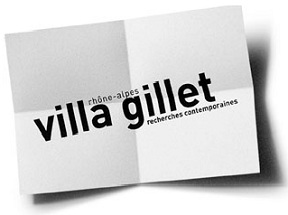Jonathan Dee on the place of the novel in a money-driven society
![[title-image]1332154738579[/title-image] dee-jonathan-couleurs-c-mathieu-bourgois-n-b-01_1339616358686.jpg](https://cle.ens-lyon.fr/anglais/images/dee-jonathan-couleurs-c-mathieu-bourgois-n-b-01_1339616358686.jpg)
Jonathan Dee (born 1962) is an American novelist and non-fiction writer. His fifth novel, “The Privileges”, was a finalist for the 2011 Pulitzer Prize for Fiction. Dee was born in New York City. He received a B.A. in American Studies from Yale University, where he studied fiction writing with John Hersey. He lives in New York City with his wife, the literary agent Denise Shannon, and their daughter.
Les éditions Christian Bourgois publieront en novembre 2012 un recueil en français des textes écrits à l'occasion des assises du roman.
About money there is nothing new. Nor about social inequity. When I wrote The Privileges, I was careful to leave out as many time-specific details as possible, because I felt that to tie its characters, and the lives they led, to the circumstances of a particular moment in history was to excuse them, in a way, and thus to miss the point of their existence.
Having said that, though, it is true that we are living in interesting times. Citizens of the Western democracies have lately voiced a critical attitude toward their own social contracts unheard, in the United States at least, since probably the 1930s. An active minority of the majority often referred to as The 99% now occasionally dares to part the rhetorical veil thrown over the fundamentally venal operations of their ruling class. Which has of course reawakened a reactionary instinct in the rulers themselves. Most comic of all is the zombie-style return, in American public discourse, of the word “socialism” – a word with so little genuine application to American life that its new currency can only be blamed on a kind of vestigial childhood nightmare. One would like to think that all this panic and outrage creates conditions for some kind of significant and lasting change; but it’s hard to look at the pathetically conservative aftermath of the recent global financial crash and draw any conclusion about our collective future other than that the rich are marvelously adaptive when it comes to figuring out how to stay rich.
How to write about all this? For a novelist, the question is not an easy one. The last American to write meaningful fiction about the vast social canvas of economic inequality was John Dos Passos, whose own reputation (and work) suffered after he took a sharp turn toward the right wing in the late 1930s. Certainly conditions are more than ripe, in American art, for a new Dos Passos. One of the conditions which have changed since his time, however, is the condition of the novel itself, as it becomes, increasingly and ironically, associated with the notion of a cultural elite – a rarefied, exclusionary pastime which perhaps signifies more about its devotees than it means to them, on an aesthetic journey from the economic mainstream to the upper margins much like that taken previously by opera and jazz. The future of reading itself, one is constantly reminded, depends upon an electronic device that costs hundreds of dollars and that can be manipulated at any time by a remote corporate hand.
Don DeLillo once said that he enjoyed the idea that the novel as dead, because that turned him into a ghost, with all of a ghost’s privileges. For writers it is worth remembering, and valuing, the particular nature of our presence in the contemporary crowd: spectral, and marginal, and never at its head. Long-form prose fiction is not a political tool, nor is it even especially democratic. I am not unhappy to be stripped of this responsibility. Only bad literature proselytizes anyway. Great literature sees, without advocacy and without pity.
Pour citer cette ressource :
Jonathan Dee, Jonathan Dee on the place of the novel in a money-driven society, La Clé des Langues [en ligne], Lyon, ENS de LYON/DGESCO (ISSN 2107-7029), juin 2012. Consulté le 07/01/2026. URL: https://cle.ens-lyon.fr/anglais/litterature/entretiens-et-textes-inedits/jonathan-dee-on-the-place-of-the-novel-in-a-money-driven-society



 Activer le mode zen
Activer le mode zen


